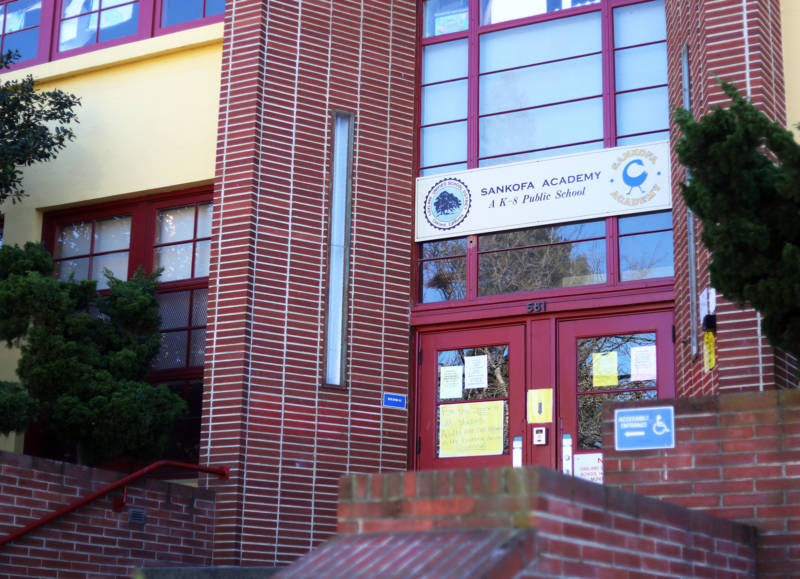"They wanted specifically for us to revisit those percentages because some of them had gotten some calls from parents at high-demand schools specifically," Lee said.
Here's how it might play out: If there are 100 open seats in a school, and 20 siblings enroll, then of the 80 remaining seats, at most 41 of them would go to children from outside that attendance area, using the opportunity ticket. As some critics see it, that's 41 neighborhood kids who would be displaced. Elmhurst United Middle School Principal Kilian Betlach, who was on the district's advisory committee, disagrees.
"Neighborhood preference is not a guarantee. It’s preference," Betlach said. "I wouldn't choose the word displacement. That’s the way it’s being framed."
If the district moves ahead with its plans to merge Kaiser Elementary School with Sankofa Academy at the Sankofa site, and Oakland SOL with Frick Impact Academy at the Frick site, just the 280 students from Kaiser and 136 from SOL would get opportunity tickets to move to any of the city's top schools. Students from Sankofa and Frick would not have that option.
The idea that Kaiser parents at a school that is 31% white and already high-achieving would see their students get an opportunity ticket to another high-performing school is an irony not lost on Young.
"If a bunch of privileged families take a loophole in the policy to take this ticket to get a further leg up for their families, then I think folks need to take a long look in the mirror and revisit the signs in the window," Young said, of Kaiser parents who are resisting the merge with Sankofa.
The advisory group considered limiting the ticket to affected students who fall into "disadvantaged student" categories defined by the Local Control Funding Formula, but backed off, said Lee. Betlach agreed with that move.
"It's hard to be policy leader in place like OUSD, where it’s incredibly segregated and a huge part of your community is not well served, and at same time the kids going to school in the hills and those young people ... we are also accountable to them," Betlach said. "We can’t be hostile to them or to their privilege. They are part of community. It's a line to walk."
Several on the advisory board spoke of the opportunity ticket as a mechanism to soften the blow of the hardship of changing schools.
"School closure kids go through negative experiences, and these structural changes are understood to be for the greater good. It makes sense to offer something for the sacrifice," Betlach said.
Kaiser Elementary parent Katherine Lee said it was still unclear how her fellow parents were thinking about the choice between moving to Sankofa and creating a newly merged school or taking an opportunity ticket.
"You know, it's [Kaiser] an academically well-performing school. And so there might be a desire to go to another school that is as well performing or better," Lee said. "And unfortunately, in Oakland, that tends to mean whiter schools. Ultimately, I don't know what each family's going to do."
Some Kaiser Elementary parents are already threatening to sue or leave the district altogether, should their school be merged, opportunity ticket or not.
The district is expected to weigh the recommendations before a final vote in October.

